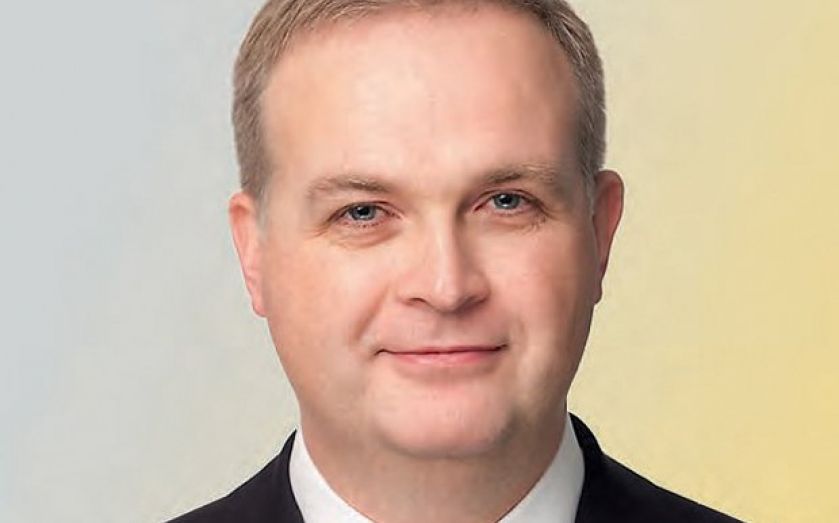Aviva Investors’ Euan Munro on why markets will see more Wobbly Wednesdays

It’s lunchtime at Aviva Investors’ offices at No.1 Poultry, but the three platters of fish, meat and vegetable sandwiches supplied by catering lie untouched on the table.
Euan Munro, chief executive of the fund management house, is sitting drinking full fat Coca-Cola from a glass, while the pungent aroma of the Coq d’Argent restaurant upstairs wafts down into our meeting room.
The Scottish boss, who at well over six feet in height is an imposing figure, is unconcerned with food, however.
With over £240bn under management and a background running a fund bigger than the economy of Latvia at Standard Life Investments (his old firm), Munro has bigger fish to fry.
He was drafted in by Aviva Group’s chief executive Mark Wilson in July 2013 to shake up the underperforming division, bruised by long periods of outflows.
His first task was to launch a replica of his megafund at Standard Life, dubbed the Aviva Investors Multi-Strategy (Aims) target return fund, which posted strong first quarterly performance numbers on Monday.
Analysts have long pointed to Aviva’s Investors’ small contribution to the parent group Aviva’s bottom line – it reported annual profits of £93m last year, less than five per cent of parent company Aviva’s earnings compared with a 20 per cent figure at some rivals – but Munro is unperturbed.
“We do need to improve our profitability and that’s why I’m here,” Munro says. “The way to do that is to win increasing volumes of third party business.”
We are sitting in an office directly behind the large clock adorning the central tower on No.1 Poultry – peering out at the Royal Exchange.
“The measure of our importance to Aviva Group should not be the profitability that we generate. It’s a discretionary choice and historically profits have emerged from elsewhere in the organisation.”
Munro’s move into the Aviva Investors hotseat was his first experience as a CEO and marked his permanent migration away from hands-on money management.
Yet his experience at the coalface of fund management has come in handy in his new role.
Since taking over the business, two large-scale market shocks have rocked investors – the taper tantrum in July 2013 and the recent sell-off on 15 October, dubbed Wobbly Wednesday.
It’s a trend he sees woven into the fabric of our post-crisis market – and one we all have to get used to.
“You don’t see it day-to-day, but I do genuinely believe that some of the moves to remove the capacity for proprietary trading from investment banks, the Volcker rule type changes, has led to [a situation] that when sentiment changes and the market becomes all one way, there is no real capacity for risk absorbancy in the market,” he says, hitting his stride.
“I genuinely think we’re in a environment where for long periods of time we’ll have a false sense of security and then we’ll have these huge drawdowns and huge episodes of volatility and we’ll see these episodes every three of four quarters… I think it’s the future of our market.”
Munro, who spends three nights a week at his flat near the Tower of London and four nights in Scotland with his family, has other risks to factor in at the business.
The uncertainty of the upcoming UK election (“the fact things haven’t felt wonderful for the vast majority of the population means we are at the mercy of perhaps quite populist decisions being made”), rising global inflation (“the big threat on the macro level”) and ongoing horse trading in the Eurozone around quantitative easing (“the ECB needs a crisis before they can get the political will to do anything”) are all concerns on the horizon.
But for now his priorities are closer to home – managing people and helping them make money for their clients.
“I will still have the odd idea that I think makes money and I’ll throw it in to the process,” he says.
“But 90 per cent of the ideas come from other people. It’s not me sitting in front of the Bloomberg terminal everyday.”